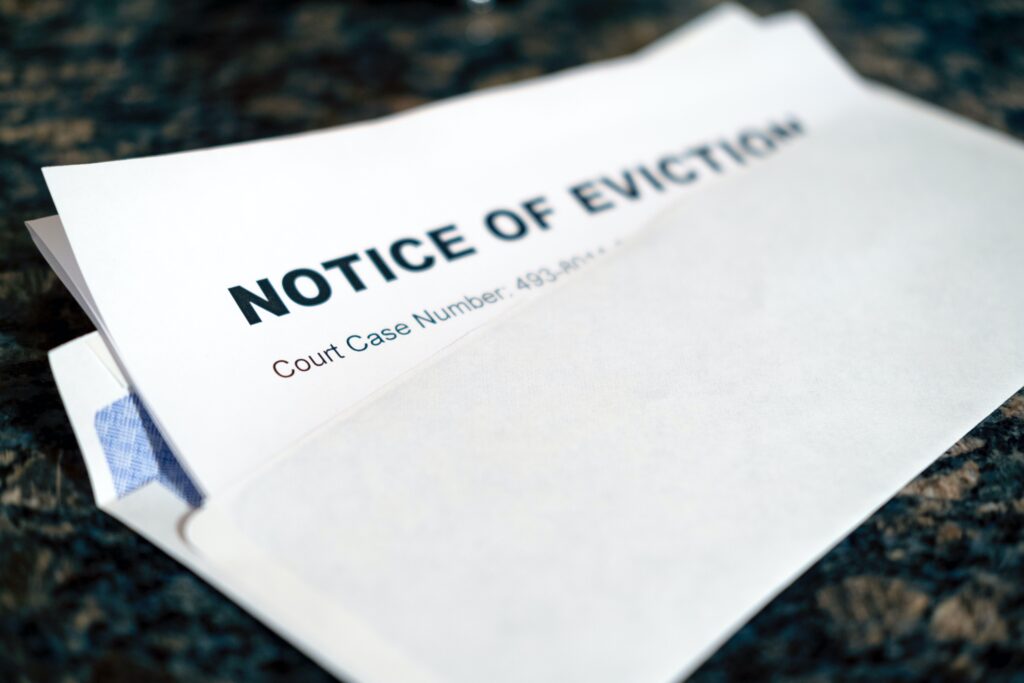Inheriting a home from your parents is a deeply personal experience — one that blends emotion with legal and financial responsibility.
For some, it’s a legacy to preserve. For others, it’s a complex decision with practical implications.
We’ve worked with hundreds of families at this very crossroads. Some were overwhelmed by paperwork. Others didn’t know where to start. That’s why we’ve put together this full, no-nonsense guide.
Let’s make this as simple and stress-free as possible.
First Things First – What to Do Immediately After Inheriting
So, you’ve inherited your parents’ house. Now what?
Here’s what needs doing straight away — before you even start thinking about whether to keep, rent or sell the property.
1. Secure the Property
Start with peace of mind.
- Change the locks, especially if you’re unsure who had access.
- Notify the neighbours and ask them to keep an eye on the place.
- Check the insurance policy — most home insurance policies don’t cover unoccupied homes by default. You may need to switch to an empty home insurance policy ASAP.
2. Locate the Will and Identify the Executor
If your parent left a will, you’ll need to find it quickly. It should name an executor — the person responsible for managing the estate.
If you’re the executor, your job is to deal with probate (more on that shortly). If not, you’ll be in contact with whoever is.
No will? The estate is considered intestate. In that case, rules under the intestacy laws kick in, and a close relative (often the spouse or children) will need to apply for something called Letters of Administration.
3. Notify Authorities and Utilities
Here’s a quick checklist:
- Council: Inform them and apply for the Class F council tax exemption — this usually stops council tax being charged while probate is ongoing.
- Utility providers: Water, gas, electricity — let them know. You can usually ask them to put accounts on hold or into your name temporarily.
- Insurer and mortgage lender: If the home is mortgaged, they need to be informed. The lender will usually freeze repayments until probate is granted.
Understanding Probate – What It Is and Why It Matters
Before you can do anything major with the house — like selling it or transferring ownership — probate needs sorting.
But what exactly is it?
What Is Probate?
Probate is the legal process of validating the will and giving the executor permission to manage the estate. It’s how you get legal authority to deal with the property, finances, and other assets.
Even if you’re the sole heir, you still need probate if there’s property involved.
If there’s no will, the process is similar but instead of a Grant of Probate, you’ll need Letters of Administration.
Either way — it’s what gives you the legal green light.
Applying for Probate
Here’s how the process works in simple terms:
- Complete the probate forms — these include the PA1P form (for when there is a will) and a summary of the estate’s value.
- Submit the application — online or by post, along with the original will and death certificate.
- Pay any Inheritance Tax (if applicable) — more on that below.
- Receive the Grant — this can take anywhere from 6 to 12 months, depending on the complexity of the estate.
Need help? You don’t have to go it alone. Many people appoint a solicitor or probate specialist to handle it for them.
Managing the Property During Probate
While probate is processing, you’re still responsible for the home.
That includes:
- Keeping the house secure and insured.
- Paying for utilities, maintenance, and any urgent repairs.
- Keeping clear records of all expenses (these can usually be reclaimed from the estate).
Tip: If the property is empty for more than 30 days, standard home insurance may become invalid. Make sure the insurer knows it’s unoccupied and update the policy if needed.
Inheritance Tax, Capital Gains Tax, and Other Financial Considerations
Before you decide what to do with the property, you’ll need to understand the tax side of things. Here’s what matters most.
Inheritance Tax (IHT)
IHT applies to estates over a certain value — and a house is often the biggest part of that total.
Here’s the current setup:
- £325,000 is the standard nil-rate band — anything above this is taxed at 40%.
- If the home is being passed to a direct descendant (child or grandchild), you may qualify for the Main Residence Nil Rate Band — worth an extra £175,000 per person.
- That means a married couple could pass on up to £1 million tax-free, assuming all allowances are used.
Important: IHT must be paid (or arrangements made) before the Grant of Probate is issued. If you don’t have access to funds, HMRC may allow instalment payments or use something called the Direct Payment Scheme (DPS) to pay tax directly from bank accounts.
If you plan to sell the house after probate is granted, Property Rescue can also provide you a cash advance that you can use to pay for IHT. Then, after probate is granted, we’ll buy the house from you directly for a cash value, minus the cash advance amount we gave you.
Capital Gains Tax (CGT)
You don’t pay Capital Gains Tax when you inherit a property — but you could if you sell it later.
Here’s the deal:
- The property’s value is “reset” at the time of death (the probate value).
- If you sell the property for more than that probate value, you’ll owe CGT on the gain.
- The current annual exemption is £3,000 (2024/25), and CGT rates for residential property are 18% or 24%, depending on your income level.
Want to avoid CGT? If you move into the property and make it your main home, you may be eligible for Private Residence Relief when you eventually sell — which could exempt you from CGT entirely. We’ve written extensively on avoiding CGT here.
Stamp Duty Land Tax (SDLT)
Good news: Stamp Duty Land Tax or SDLT isn’t payable when you inherit a property.
However, if you take on a mortgage as part of the inheritance — rare, but possible — SDLT may apply on the outstanding balance. Always double-check this with a solicitor.
Your Options: Keep, Rent, or Sell the Property
Once probate is underway (or complete), you’ll need to decide what to do with the property. Each option comes with its own pros, cons, and responsibilities.
Let’s break it down.
Option 1 – Move In and Make It Your Home
This might be the most straightforward emotionally — but it’s still worth thinking through the logistics.
Key considerations:
- If the home was mortgage-free, there’s no lender to deal with.
- If there’s still a mortgage, you’ll need to pass affordability checks to take it on — or refinance it in your own name.
- Moving in makes the home your main residence, which means:
- No CGT if you sell it later.
- You become responsible for ongoing bills, council tax, and maintenance.
Also, consider whether the location, size, and condition of the property actually suit your lifestyle. Nostalgia is powerful — but so is practicality.
Option 2 – Rent It Out
Not ready to sell but don’t want it sitting empty? Renting might be a smart middle ground.
Upsides:
- Steady rental income.
- You retain ownership and could still move in or sell later.
But… you’ll need to become a landlord, which means:
- Gas safety checks and smoke alarms.
- Tenancy deposit protection schemes.
- EPC rating of at least E.
- Potential licensing requirements (especially in HMOs or selective licensing areas).
Also factor in:
- Ongoing maintenance costs.
- Letting agent fees (if used).
- Income tax on rental profits.
Empty periods (voids) and tricky tenants are part of the job — so go in with your eyes open.
Option 3 – Sell the Property
Sometimes, selling is simply the most sensible choice — especially if the property is too costly to maintain, shared between siblings, or not useful long-term.
Benefits of selling:
- Access to a large sum of money — useful for paying off debts, funding your own property, or splitting inheritance.
- Avoids ongoing costs, tax complications, and stress of being a landlord.
Key tip: Selling soon after probate is granted means CGT (if applicable) will be calculated based on the probate value — which usually means less tax to pay if values haven’t risen dramatically since.
In many cases, selling brings emotional closure too.
Emotional Considerations and Family Dynamics
Inheriting a house isn’t just a financial event — it’s an emotional one. Especially when it’s your childhood home.
This stage can be difficult, particularly if you’re managing the process alongside siblings or extended family.
Dealing with Belongings
Clearing out a loved one’s possessions is rarely easy.
Here’s a respectful, organised approach:
- Work room by room. Don’t try to do everything at once.
- Involve family members early. Let everyone choose items that have sentimental value to them.
- Consider professional house clearance services, especially if the volume is overwhelming.
- Donate, sell, or recycle where possible — but keep a few special pieces if they help with the grieving process.
Tip: Create a memory box. Even just one item from each room can help preserve a connection without overwhelming your own space.
Reaching Agreement with Siblings
Shared inheritances often lead to friction — especially if opinions differ on what to do with the home.
Here are your options:
- Buyout: One person buys out the others’ shares if they want to keep the property.
- Sell and split: The simplest way to ensure fairness.
- Shared ownership: All parties remain joint owners, either living there or renting it out — but this requires legal agreements to cover what happens if someone wants out later.
Always document everything, especially financial contributions and decisions.
If disputes arise:
- Try mediation first — it’s faster and less costly than legal battles.
- In worst cases, the matter could go to court. Best to avoid this if at all possible.
Emotions are high during bereavement. Clear communication — and sometimes compromise — go a long way.
Preparing the Property for Sale (If You Choose to Sell)
If you’ve decided that selling is the right move, it’s time to get the house market-ready — without overspending.
Valuation and Agent Selection
Start with a realistic picture of the home’s value:
- Probate value: This is what was submitted for inheritance tax purposes — and it’s often your “starting point” for CGT calculations.
- Market value: What the property is likely to fetch today. Get at least three estate agent appraisals to compare.
Choose your estate agent wisely:
- Look for local experience, especially with probate properties.
- Compare fees, service levels, and marketing strategies — not just the headline valuation.
Alternatively, if speed or simplicity is your priority, consider a cash buyer like Property Rescue. We can bypass the open market entirely and complete the sale in days — not months.
How Property Rescue Can Help
Sorting through a loved one’s estate is hard enough without the added stress of an uncertain house sale.
That’s where we come in.
At Property Rescue, we specialise in helping people navigate inherited property — quickly, discreetly, and with compassion.
Whether you:
- Want to sell without repairs or viewings…
- Are facing family disagreements or a complicated probate…
- Need to settle debts or release funds fast…
We can help.
Here’s what you get with us:
- A free, no-obligation cash offer — typically within hours.
- A guaranteed sale — we don’t back out, delay, or change our minds.
- Completion in days, not months: perfect if you need speed or certainty.
- We cover all legal fees: no estate agent charges, listing costs, or hidden extras.
- You choose the timeline: want to complete next week? Or need a few months to sort belongings? No problem.
- Cash advance: Need cash for inheritance tax? No problem. Just let is know.
We also buy homes in any condition — even if they’re unmortgageable, need major work, or have title issues.
If selling through a traditional estate agent feels too slow or stressful, give us a call. We’ll explain your options and help you make the right decision. No pressure, no pushiness.
When You’re Ready, We’re Here to Help
Inheriting your parents’ house is never just about bricks and mortar.
It’s memories. Family. Responsibility.
But it’s also an opportunity to honour your parents’ legacy, make clear-headed decisions, and plan for your own future.
Whether you choose to live in the home, rent it out, or sell it — the key is to act with clarity, not pressure.
And if you decide selling is the way forward?
We’re here.
Get your free cash offer today — and take the first step toward clarity and peace of mind.
No fees. No stress. Just sold.








